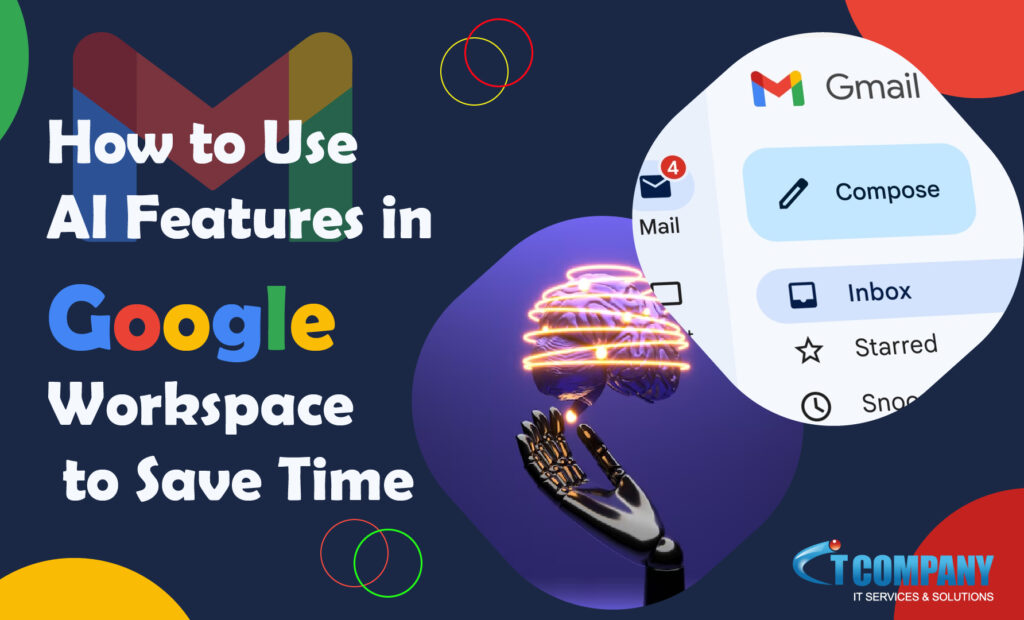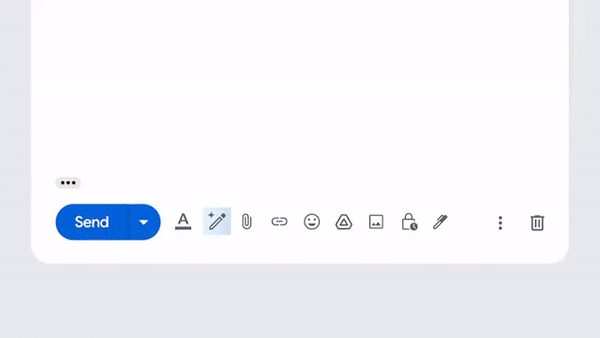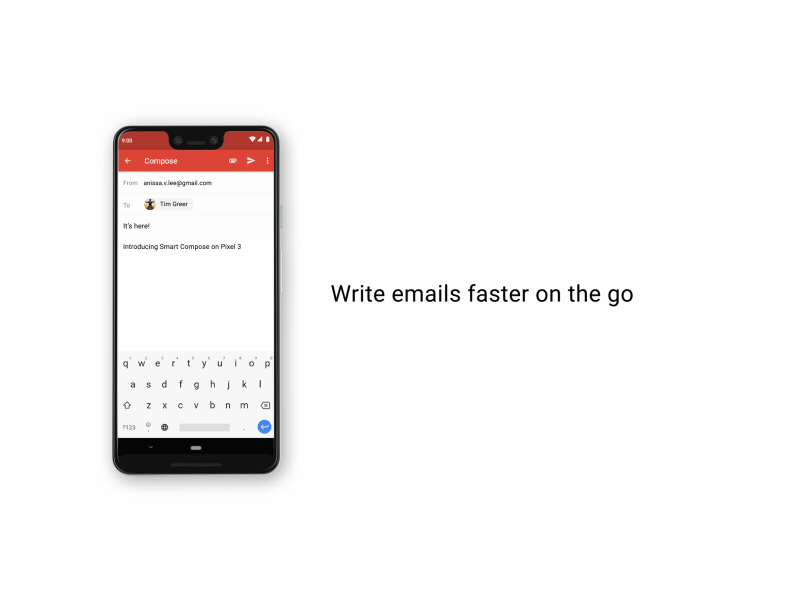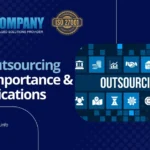
These are six AI-powered features that make Gmail more useful in a Google Workspace for a variety of activities, from setting up incoming mail to assisting with reply writing.
Table of Contents
Toggle1. “Help me write” Feature
Based on basic questions, “Help me write” may generate whole email drafts for you. It is now accessible as part of the new Google Workspace initiative, for which you may sign up on the internet and express your interest here. When you are connected to the feature, the “Help me write” icon will appear when you select Compose an email in Gmail. Look for the star and a pencil and add a note expressing what you’d like your email to revolve around – perhaps you’d like to ask an individual for book recommendations, particularly thrillers set in scenic settings.
In any case, after you click “Create,” you’ll see a complete draft based on your prompt. Choose “Insert” or look for the “Refine” button to make some changes — based on your preferences, you may choose alternatives to make your email more professional, more complex, or shorter. You may even try “I’m feeling lucky” to see how “Help me write” sounds. Gmail has also recently added the ability to take information from prior threads to assist fill in contextual gaps.

“Help me write” interprets your prompt and determines which combination of words best conveys your request using generative AI big language models. Furthermore, this new technique draws on previous generative models used for Gmail’s Smart Compose and Smart Reply capabilities.
2. Intelligent Composition
Smart Compose is useful when you don’t need assistance drafting an email draft from beginning but would want some ideas along the way.
This feature displays phrasing ideas by running a hybrid language generation model using Tensor Processing Units (TPUs). A single hit of the “Tab” button accepts the recommendation and inserts those words into your email draft without requiring you to spell them out completely.

While one purpose of Smart Compose is to help users write more effectively, the functionality can also come with a significant benefit for some people. “English isn’t my native language, so I use Smart Compose to learn new phrases,” said Chao. Know that there are other language learners out there.
3. Smart Response
Consider receiving an email from a buddy asking whether you can attend their party on Saturday, just before you start a string of meetings. Consider how quickly you could respond to a buddy without typing anything.
In a nutshell, that is Smart Reply. This functionality may produce up to three different answers to emails. You may pick and email your response with only two clicks or touches.

To find a suitable set of probable replies from a wide range of different, nuanced comments, Smart Reply employs advanced machine learning technology such as deep neural networks, which is when a computer learns to do something based on prior examples.
4. Inbox Tabs
Your email account should be simple to use, not a jungle of junk to sort through. This is when the tabbed inbox comes into play. Gmail tabs rely on a categorization system that employs machine learning to determine where an email belongs based on various indications, such as who sent the email. Messages are then sent to one of five inbox tabs: Primary, Promotions, Social, Updates, and Forums. (You may use any number of these tabs as you wish.) This allows you to quickly examine messages that you frequently want to view first, and automatically filter the ones that you can save for later. Furthermore, if a message shows in one tab but belongs in a different one you may move it to the appropriate tab.

5. Summary Cards
Summary cards are useful when you get an email with a lot of information but just require a small portion of it. “Take, for example, airplane reservations. “It’s very likely that you’re only interested in knowing the date and time of your flights,” adds Chao. Alternatively, if you make an online purchase, you might like to see everything you purchased at the top of of your confirmation message rather than scrolling throughout.
Summary card technology searches for certain data in inbound emails using heuristic as machine learning techniques to determine what sort of communication it is and the most significant material in the message. Instead of having to wade through all of that information, this feature will display an information card at the top of the message with the most significant facts, such as your travel dates and length or the names of the things you bought. In addition to travel and retail confirmation emails, summary cards may appear at the top of confirmation emails for hotel bookings, restaurant reservations, ticketed events such as concerts, and Google Calendar invites. (You’ll also be able to amend your response to those Calendar invites.)

6. Pushing
If you’ve never neglected to respond to an email, you could be one in a million. For all of us, there’s Pushing, which alerts you when it’s time to respond to or follow up on crucial communications. Nudging is an initial Gmail AI function that works on both received and sent emails, according to Chao, and it’s also his preferred Gmail AI feature for a personal reason: “It helps me discover lots of missed emails,” he adds.
Nudging employs a model based on machine learning to recognize which emails you haven’t responded to and estimate which of them you’d ordinarily respond to for inbound emails. After a few days, it will move the item to the top of your inbox with an email saying.

Conclusion
Finally, with its abundance of AI-driven capabilities, Google Workspace stands out as a great tool for time management and productivity development. The use of artificial intelligence throughout Google Workspace, particularly in Gmail, provides exceptional efficiency, simplifying operations and enabling better work processes.
Users may unleash a new level of productivity by utilizing the AI capabilities inside Google Workspace, allowing them to do more in less time while embracing a smarter, more intuitive style of working. Experience Google Workspace’s revolutionary potential and see firsthand how AI can alter your workflow, optimize your time, and boost your productivity to new heights.




